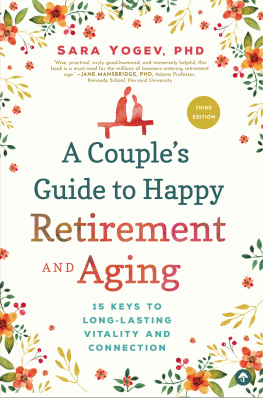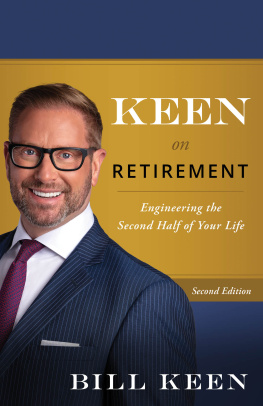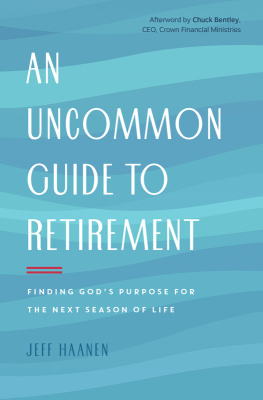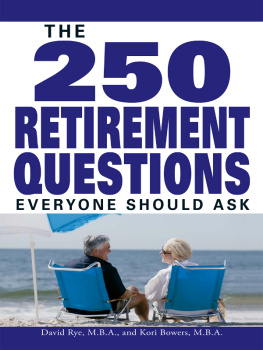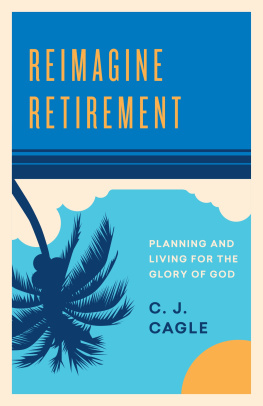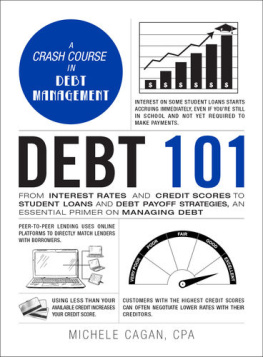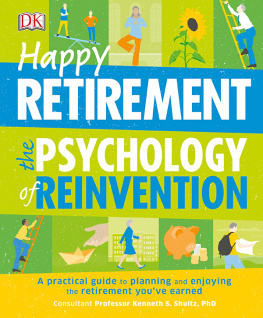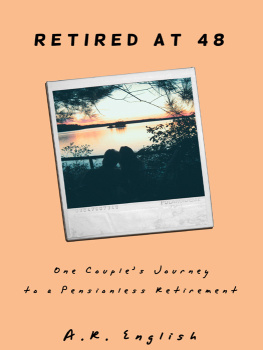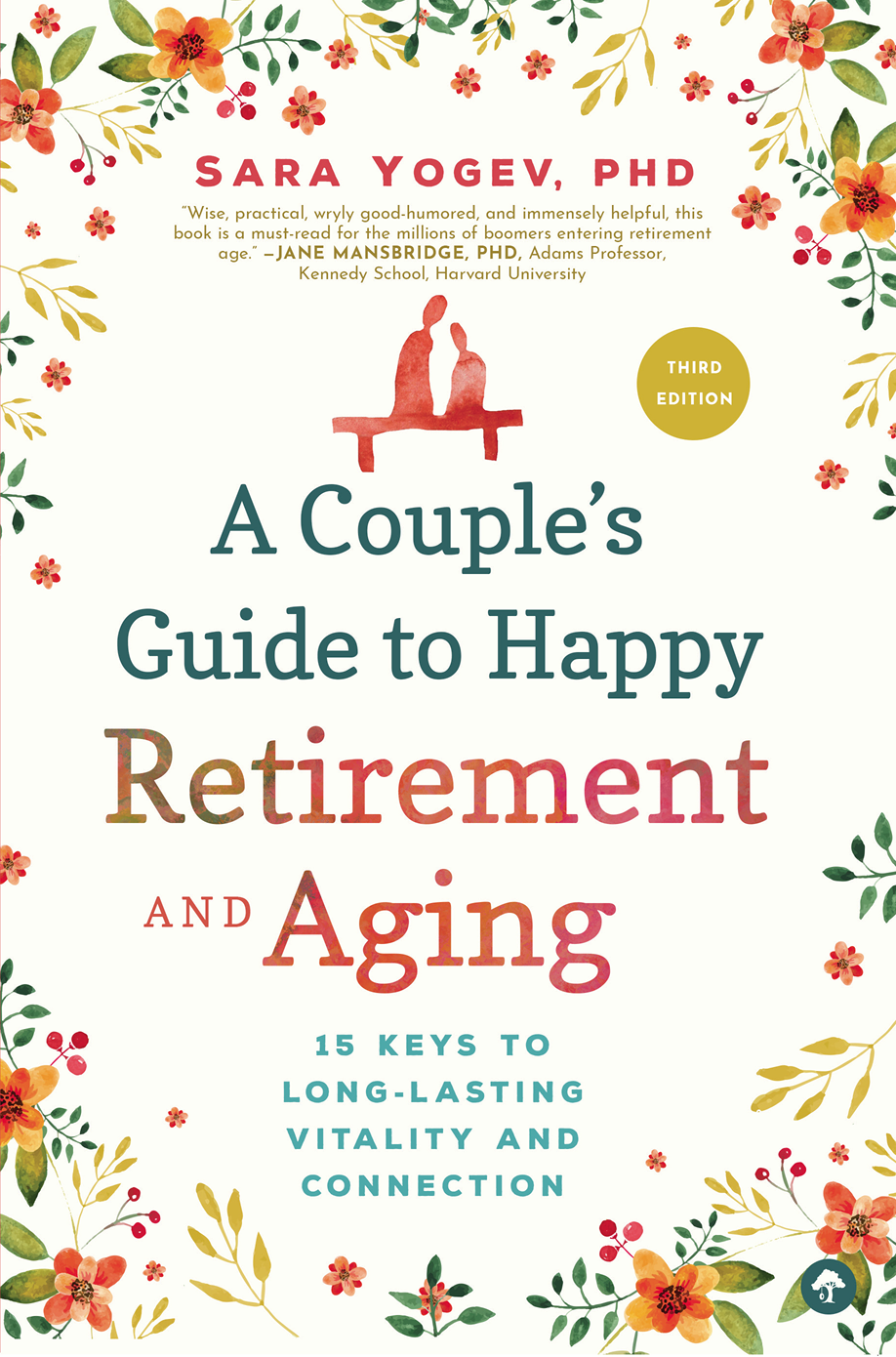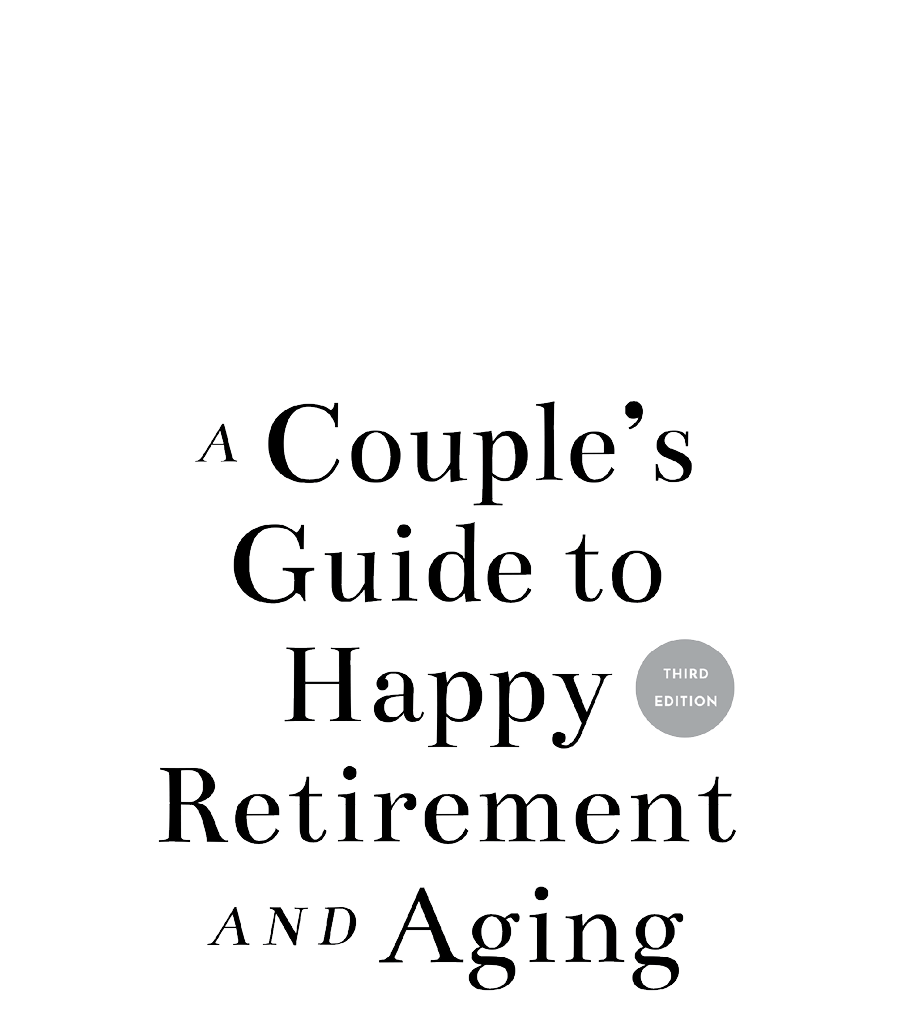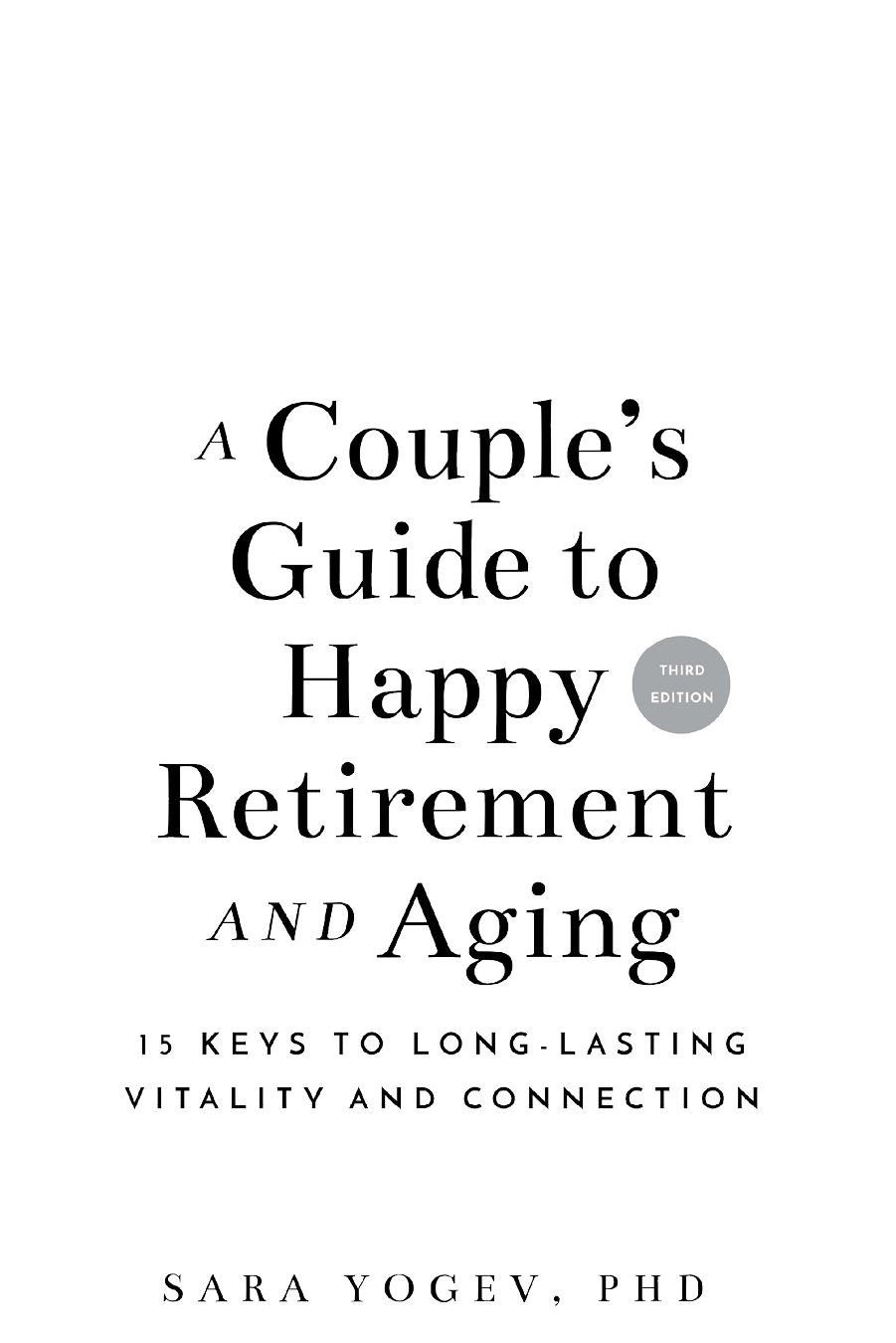Praise for A Couples Guide to Happy Retirement and Aging
I have recommended earlier editions of this book to numerous friends and given it to many other as wellall of them loved it. The new edition is the best yet, addressing the larger experience of an engaged life as we age. Written by a psychologist with vast experience in marital counseling and work-family balance, it combines the latest research findings on aging and retirement with warm and sympathetic real cases to help us all plan for the psychological issues that arise at this life stage. In planning retirement, people often mistakenly focus only on its financial aspects. Dr. Yogev describes both the individual dynamics people face and the changes couples experience in their relationships as they enter retirement age. She offers practical suggestions ranging from how to handle time together and apart, to finding purpose in ones life, and how to manage relationships with money, housework, alcohol, friends, family, and the seeming impenetrability of the new but necessary technologies. Wise, practical, wryly good-humored, and immensely helpful, this book is a must-read for the millions of boomers entering retirement age.
JANE MANSBRIDGE, PhD, Adams Professor, Kennedy School, Harvard University
In the third edition of her very valuable book, A Couples Guide to Happy Retirement and Aging , Dr. Yogev discusses the psychology of this life phase with case examples from her practice and questions that help the readers apply the material to their own situation. This topic is becoming increasingly important as the seventy-seven million baby boomers enter retirement age. Dr. Yogev addresses the changes in maturing adults living in a society with age bias. Aging, rather than being viewed as a new phase of life, is viewed with negative bias by younger people as they compete for the resources and jobs the older still command. Society even dictates that sixty-five or seventy is the Chronological Age of Retirement, regardless of ones ability to continue and contribute to the general public. We believe that a new perspective on aging as generations of people with experience, wisdom, and judgment, who are chronologically older but still can contribute to the growth of society, will become more accepted as the numbers of people over sixty-five increases. (According to the 2010 USA Census, people older than sixty-five years represent 16 percent of the population, a number that continues to grow and will reach 20 percent by 2030.) It is not only in the USA, but also in other civilizations across the world. Few countries have addressed this problem affecting millions of their citizens.
The dynamics between couples going through the processes of retirement and aging are not well known. The psychological experiences each person feels individually as they mature, as well as the altered ways in which they relate to each other, are surprising, unrecognized, and can be devastating, as the author points out. Dr. Yogev guides individuals and couples in the transition to the positive value that each maturing individual has to oneself, to each other, and to all of society. She provides a worthy psychological insight into the changes both the male and female are experiencing in this evolution, with a better understanding of their own feelings and relationships with each other and with the community. There are very few publications that address this challenge facing maturing adults who are adapting to these new careers and progressions in their lives. We highly recommend this terrific book to all those who are entering this phase of life, providing them an extremely helpful perspective in meeting the challenge of aging and retirement, young or older.
James I. Ausman , MD, PhD, and Carolyn R Ausman , BSS, executive producers and creators of The Leading Gen: What Will You Do with the Rest of Your Life? , a public television series
A wise, optimistic, straightforward, and practical guidebook... I highly recommend it.
William Pinsof, PhD, founder and past president of Family Therapy Institute, Northwestern University
Copyright 2018 by Sara Yogev, PhD
All rights reserved.
Published by Familius LLC, www.familius.com
Familius books are available at special discounts for bulk purchases, whether for sales promotions or for family or corporate use. For more information, contact Familius Sales at 559-876-2170 or email orders@familius.com.
Reproduction of this book in any manner, in whole or in part, without written permission of the publisher is prohibited.
Library of Congress Cataloging-in-Publication Data
2017958504
Print ISBN 9781945547713
Ebook ISBN 9781641700238
Printed in the United States of America
Edited by Laurie Duersch
Cover design by David Miles
Book design by Brooke Jorden
10 9 8 7 6 5 4 3 2 1
Third Edition
A good [retirement] is a process, not a state of being. It is a direction, not a destination.
Carl Rogers
Introduction to the Third Edition
T he traditional view of retirement as a one-time, one-way, irreversible exit from full-time employment in the labor force into full-time leisure is obsolete. The definition of retirement as workers final exit from the labor force is increasingly outdated as people move in and out of the labor force, making the boundary separating employment and retirement blurred and less clear cut. For most retirement-age people today, retirement is a process occurring over time with different stages rather than a one-time event.
More and more today, retirement-age adults show the emergence of another strategy: retiring from one career but seeking other forms of employment. Here are a few examples: gradual transition to retirement by reducing hours or responsibilities over time, launching a new career, starting self-employment in an entirely new domain (often happens with individuals who have felt that their passion lay elsewhere during their working years), bridge employment in the same industry or a different one (transition employment between full-time work and complete retirement), or pursuing civic engagement by volunteering.
Retirement-age individuals develop new ways of being productively occupied and establish late-career development with potential for growth and renewal. Some researchers call this the third age, during which older adults have new opportunities for self-realization and fulfillment. By continuing some form of employment, current retirement-age individuals are increasing financial security, continuing to feel relevant, making contributions to society, and finding a purpose to life that makes them matter in ways that can enhance psychological security, well-being, and even physical health. Thus, retirement is being redefined according to individual differences and preferences.
I believe that its best to conceptualize retirement as a dynamic adjustment process in which many issues need to be addressed because of direct implications that ensue from the decision to retire from ones primary full-time employment: the timing of the decision, the preparation for it, the amount of activity change provided by the decision, and the impact of ones relationships with their partners.
However, this new reality leaves seniors in a quandary, as they need to figure out important questions like, Who am I? How and where do I want to live? What will I do? How do I want the rest of my life to be? How do I want to be remembered? In addition to these individual questions, there are also questions on the couple level: Who do I want to be with for the next twenty or thirty years? How are we doing together? And what do we want for ourselves as a couple? These questions are important for older adults more than ever as longevity increases and insecurity and anxiety for individuals arise; they can also exert great strain on couples.

